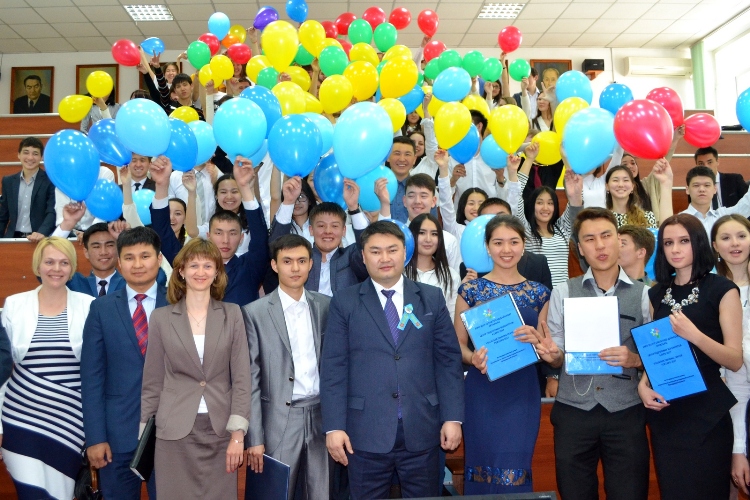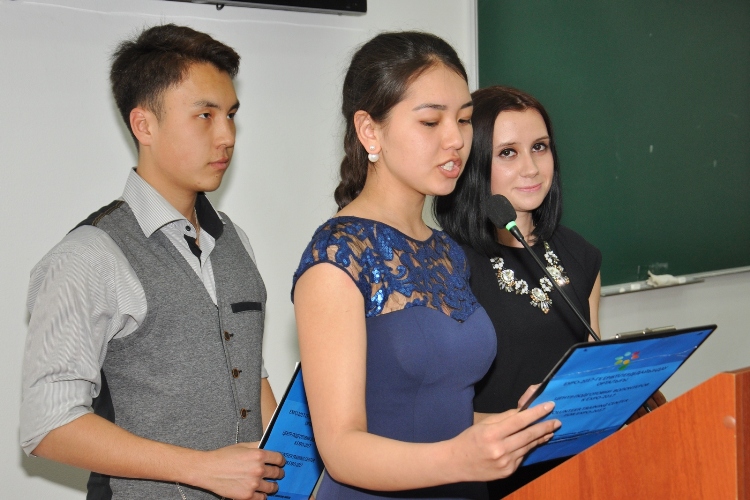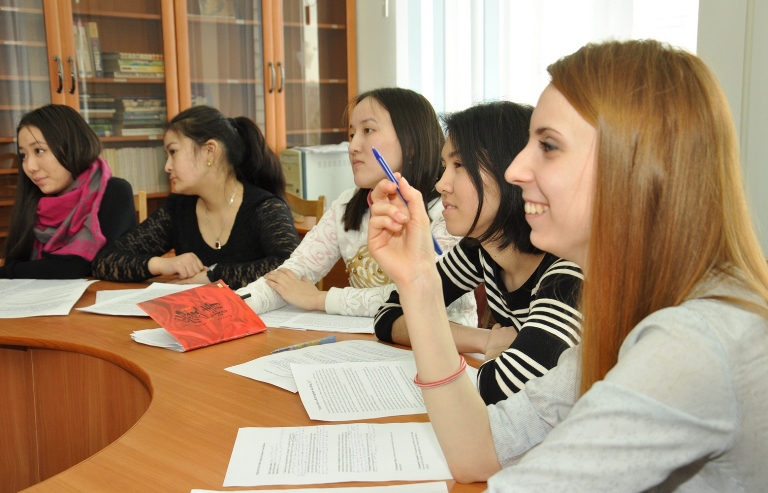С. Торайғыров атындағы ПМУ-дің қазақ тілін жеделдетіп оқыту және көп тілді білім беру оқу-ғылыми-практикалық орталығы бәсекеге қабілетті мамандарды даярлауға өз септігін қосуда.
2014-2015 оқу жылындағы орталықтың жұмыс бағыты француз тілі мен мәдениеті орталығының ашылғандығымен, сондай-ақ, Астана қаласындағы ЭКСПО – 2017 халықаралық жәрмеңкесіне волонтерлерді дайындайтын орталықтың ашылуымен ерекшеленді.
– Орталықтың жан-жақты бағытта өріс жайып қызмет етуі заманауи еңбек нарығындағы бәсекеге қабілетті мамандарды даярлауға өз үлесін қосатынына сенімдімін, – деп айтқан болатын орталықтардың ашылу сәтінде С.Торайғыров атындағы ПМУ ректоры Арын Өрсариев.
С. Торайғыров атындағы Павлодар мемлекеттік университетінің көптілді білім беру орталығы Ұлт жоспарының еліміздің жоғары мектептері алдына қойған міндеттерін орындауға өз үлесін қосып келеді.
С. Торайғыров атындағы Павлодар мемлекеттік университетінің қазақ тілін жеделдетіп оқыту және көп тілді білім беру оқу-ғылыми-практикалық орталығының директоры Жанарсын Капенованың айтуынша, орталық ұжымы Қазақстан Республикасының әлемнің дамыған 30 ел қатарына ену мұратын көздеген «Қазақстан – 2050» Стратегиясы мен бес институциналдық реформаны жүзеге асыру бойынша 100 қадам – Ұлт жоспары мақсатын өз жұмыстарының негізгі бағыты санайды. Ұлт жоспарының 79-шы қадамы білім беру жүйесіндегі экспорттық әлеуеттің өсуі мен кадрларды дайындаудағы бәсекеге қабілеттілікті арттыруды көздейді. Сондай-ақ, еліміздің жоғары оқу орындарында ағылшын тілінде білім беруге деңгейлі түрде өту жоспарлануда.
– Орталықтың қызметі жоғары оқу орнының профессорлық-оқытушылар құрамын, студенттерін, магистранттар мен докторанттарын қазақ тілі, орыс тілі, ағылшын тілі және басқа да шетел тілдерін оқытуға бағытталып отыр, – деді Жанарсын Жұматқызы.
Орталықтың шетел тілдерін оқытуда коммуникация және ақпарттандырудың заманауи электрондық құрылғыларын қолдану арқылы жеделдетіп оқыту технологиясы бойынша тәжірибесі мол. Орталықтың тіл үйрену бағдарламалары АҚШ, Ұлыбритания, Германия, Ресей және басқа да елдердің жоғары мектептерінде тілдік білім беру тәжірибесіне сүйенетін, шетел тілін меңгерудің жалпыеуропалық жүйесі дәрежесіне сәйкес жасалған.
Орталықта Ұлыбританиядан (М.С. Құлахметова), Германиядан (Б.К. Жұмабекова), Түркиядан, Латвиядан (А.К. Аипова) тағлымдамадан өтіп келген және «Shaping the way we teach English» The U.S. department of state and university of Oregon онлайн-семинарға (А.С. Сарсенбаева), Thomson Reuters Scientific and Scholarly Research ресурстары бойынша онлайн-семинарға (Аипова А.К.), Гете-институты мен ДААД семинарларына (Б.К. Жұмабекова) қатысқан білікті оқытушылар сабақ береді.
Орталықтың игі дәстүрі бойынша шетелден келген оқытушылар да өздерінің шет тілін оқытудағы тәжірибесімен бөліседі. Мәселен, биылғы жылғы шет тілін үйренушілерге Нью-Йорк университетінің оқытушысы Гарри Лидс сабақ берді.
Бұдан өзге орталық тренингтер, семинарлар, шеберлік сыныптарын, дөңгелек үстелдер мен басқа да сабақтарды өткізіп тұрады.
Орталық директоры Жанарсын Капенованың айтуынша, көптілді білім беру орталығынан білім алушылар парасат-білігін жан-жақты дамыта алады.
– Орталықта білім алушы тілді деңгейлі меңгергені туралы сертификатты иеленуге, академиялық ұтқырлық бағдарламасына қатысуға, халықаралық конференциялар жұмысына қатысуға, шетелдік тағылымдамадан өтуге, шетелдік басылымдарға мақалаларын жариялауға және магистратура мен докторантураға түсу мүмкіндігіне ие бола алады, – дейді Жанарсын Жұматқызы.
Орталықтың 2015-2016 оқу жылында профессорлық-оқытушылар құрамын шет тілін кәсіби оқыту, шетелдік дәріскерлерді шақырту арқылы онлайн-сабақтар өткізу жоспарланып отыр.











